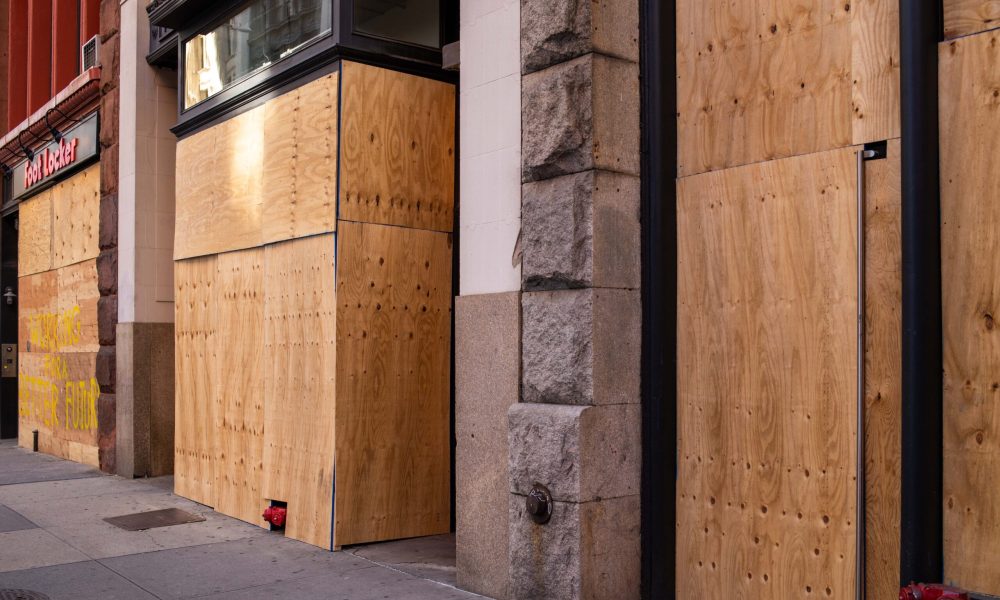To say that 2020 has been a difficult year would be the understatement of… well, the year. Wildfires, hurricanes, floods, tornadoes, and waves of civil unrest have swept not only our nation, but our entire world. The best advice I can offer is that you take whatever steps you can to protect your small corner of the world – in this case your business and the people who help you operate it.
As a Boy Scout we were told time and time again to “Be prepared” and this year we’ve seen some vivid examples of why we need to take preparations. Assess the potential threat, and respond appropriately.
I always remember seeing videos of people boarding up homes and businesses on the news before an expected event takes place. If your business has some storage space to spare, it can’t hurt to have some plywood cut to the same measurements as your windows sitting in storage waiting for the day you wished would never come. If the news is forecasting a hurricane then you should move as many things as possible out of any basement storage, and tape and board up your windows.
If there are wildfires on the way, then its best to clear out any vegetation or combustible materials from the surrounding area outside of your property. If you have access to a hose, then wet your roof, and of course most importantly, get yourself and your employees to safety.
The most common – and unfortunate – form of destruction that we’ve seen far too much of is caused by civil unrest. My teacher back in insurance licensing said that the difference between a “civil commotion” and a “riot” was that the first was a large group of angry people with signs, and the second was the same group throwing those signs and other items through windows. Of course, I’d advise that you check your policy’s definitions section as how they define it is far more important than my overview, but you get the idea. But how do you protect your business against a riot?
With a plan! Meet with your employees and determine the quickest ways that you can close up the business if danger is imminent, the quickest escape routes, as well as a meeting point if you all have to leave in a hurry. Contact your security companies beforehand and ensure that your alarm systems – and any fire suppression systems – are in working order, as emergency services can in some cases be forced to wait hours before reaching your business to protect it – by that time it can sadly be too late. One advantage of the modern age is that we can automate things that we couldn’t even dream of a few years ago. If your business requires machines to run, see if their shutdown procedures can be automated or operated from a smartphone. You may prefer to shut power and water altogether to prevent further loss – this is fine, but above all, you need to have a plan.
Finally, have a way to contact your employees once the dust settles – emergency contact information, a plan for working remotely if necessary, a list of business-related contacts (for example, your suppliers) so that you can hit the ground running once you’re able to get back to work.



